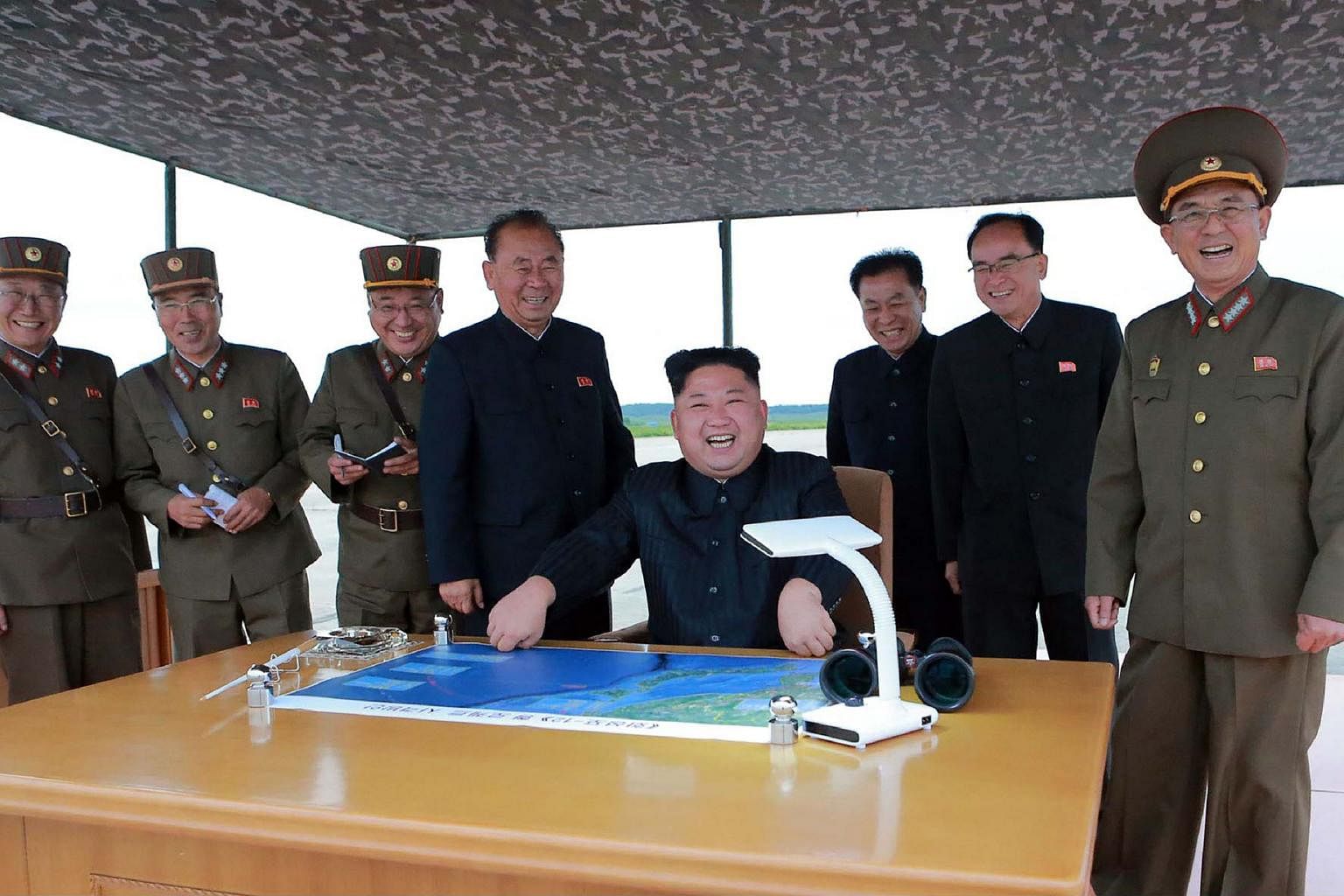North Korea is not a problem that can be solved. As much as the West may engage in wishful thinking about a revolution, the Kim family regime has survived far longer than almost anyone predicted. Even today, it shows no signs of collapsing, and the North Koreans show no signs of rebelling en masse.
Does anyone actually think that with another round of sanctions, the country's leader Kim Jong Un will suddenly give up power and North Koreans will all become liberal democrats? Or that somehow Washington could brandish enough aircraft carriers that the North Korean military and political establishment will surrender?
The widespread mocking of Mr Kim as a freakish buffoon is a sign of our misguided approach.
Viewing him as a joke is a mistake not because it's rude, but because it contributes to a dangerous underestimation of his power. Mr Kim has managed to rule for almost six years as a brutal totalitarian dictator. He may be many things, but he is not a lightweight. Leaders do not survive under such circumstances without being superb politicians.
Sanctions and threats have not worked in the past, and more of the same most certainly will not work in the future. As his father and grandfather did, Mr Kim meets pressure with pressure. It is no surprise that a surge in missile tests came as the Trump administration made threats about sending aircraft carriers and potential preemptive strikes. North Korea isn't unpredictable; rather, it is the most predictable country on earth.
The North Koreans are also very calculating. By aiming test missiles at Japan, Pyongyang is sending a clear signal: Take a preventive shot at our missile sites, and we will take a shot at Japan, most likely at the roughly 50,000 American military personnel stationed at United States bases there. It would not be the start of a second Korean War, but rather a poke for a poke. Would the US really want to up the ante a second time? Would Japan, China and South Korea want to?

Nuclear weapons are almost useless for coercion, but they are great for deterrence. They are designed to ensure the survival of the country and the regime. The more pressure the US puts on the North Koreans, the more likely they are to continue perfecting their missiles and nuclear weapons. In short, deterrence works, and neither North Korea nor the rest of the world is in danger of forgetting that.
Twenty years ago, there might have been an opportunity for the two sides to reach a deal. But both Washington and Pyongyang have had years of evidence to back their claims that the other side will never live up to its word. This is a classic paradox: Actions one side takes to make itself safer prompt a response by its adversary, making both sides less safe.
Given this pessimistic perspective, what is the way forward?
The good news is that deterrence is effective both ways. North Korea poses almost no threat to South Korea as long as the US-South Korea alliance remains ironclad. Mr Kim may be many things, but he is not suicidal. Deterrence will continue to work.
But the North Korean problem is far bigger than its nuclear programme. The country is experiencing a humanitarian disaster. The number of people trying to flee the country could soar in a crisis. It's also an economic and environmental black hole that limits trade and travel throughout North-east Asia. While the political challenges that come with the nuclear weapons programme are unavoidable, the West should continue putting effort into solving these other problems.
Politicians in the US and South Korea may not want to admit that the North Korean nuclear arsenal is a reality, but Washington has a history of coming around. The US spent more than a decade ignoring the situation in South Asia before finally acknowledging that India and Pakistan had nuclear weapons.
North Korea is in a class of its own. But we ignore the fact that it is a real country with a functioning government at our peril. For the US, making steady progress in alleviating the humanitarian and economic problems, while maintaining strong deterrence against the nuclear programme, is the only way forward.
NYTIMES
•The writer, a professor of international relations and business at the University of Southern California and director of the Korean Studies Institute, is the author of the forthcoming book, American Grand Strategy And East Asian Security In The 21st Century.
